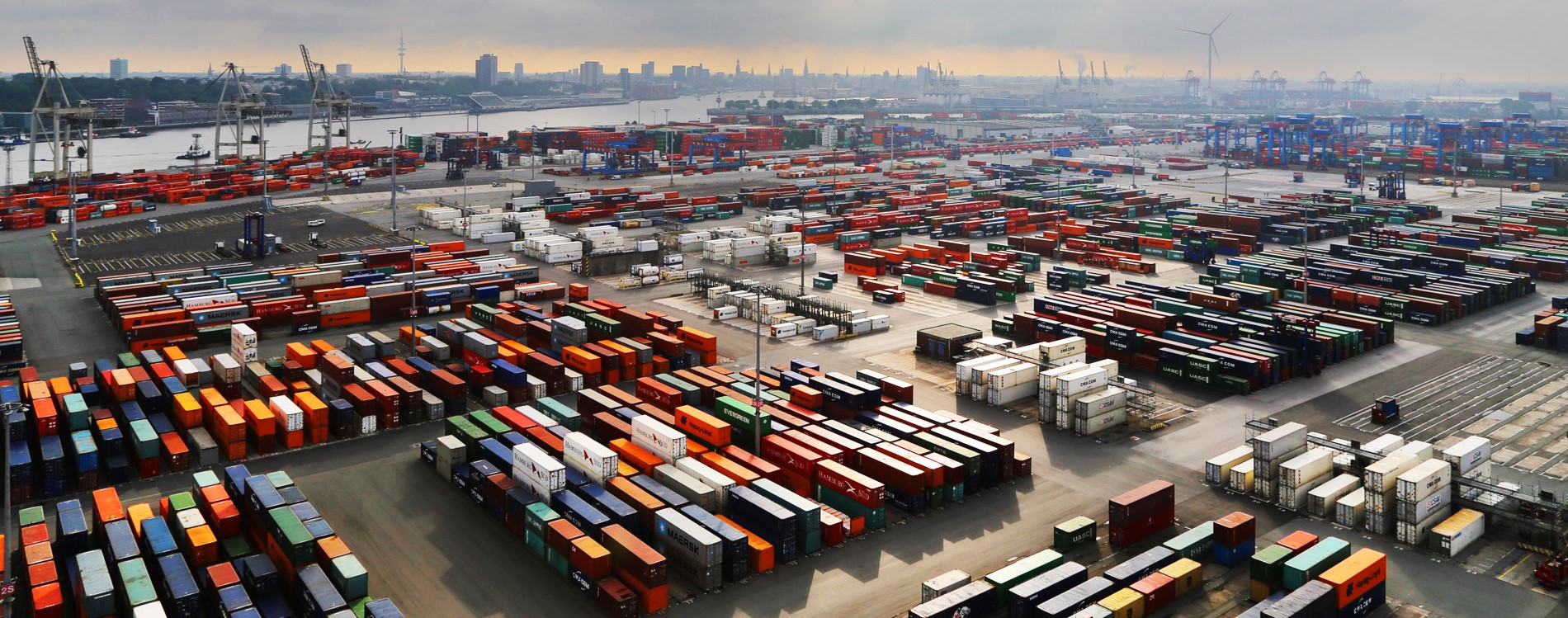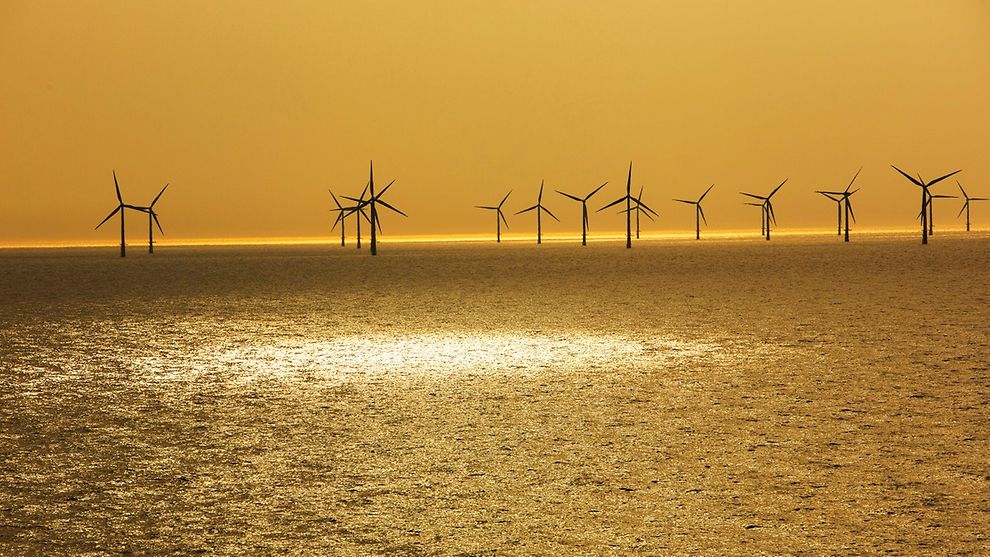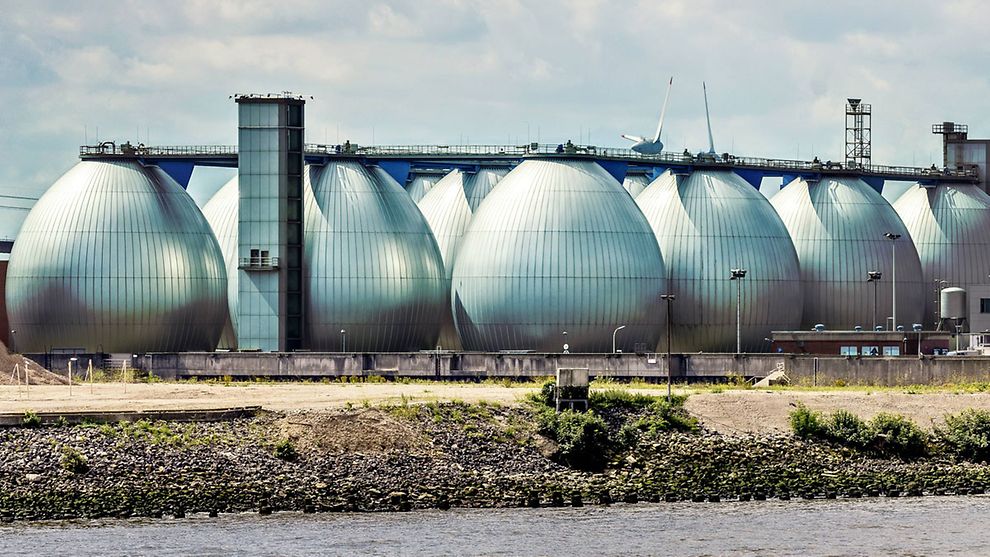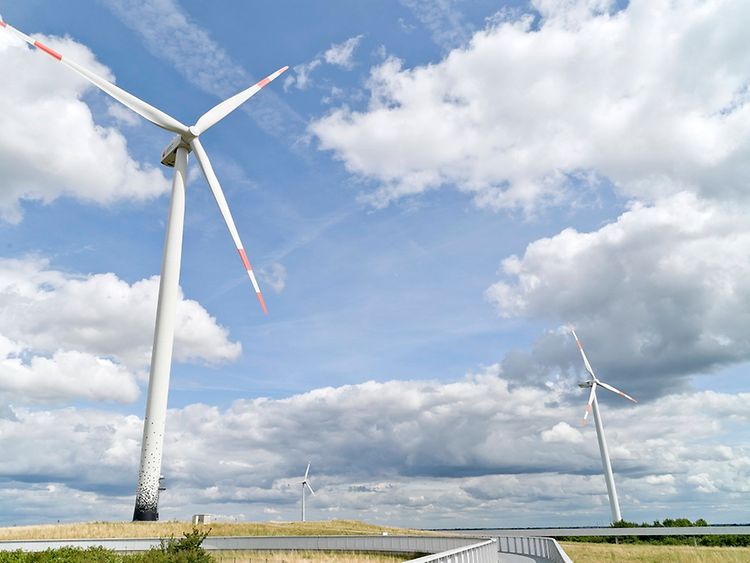Hamburg takes the federal goals for the transition to renewable energies seriously: by 2030 green energies, such as wind and solar power, are projected to make up 65% of the total energy supply. This is why Hamburg is driving the shift from fossil fuels and nuclear power towards green and renewable energies.
Offshore wind industry
Hamburg has its own climate change masterplan to cut carbon emissions by at least 80% by 2050. Over time, wind turbines have proven to be one of the most effective means of obtaining CO2-neutral electricity from renewable sources. While Hamburg draws much of its wind power from onshore wind turbines within city limits, offshore wind farms off the North Sea coast are also vital for a stable power supply.
Offshore wind farms generate clean electricity throughout the year, ensuring a secure power supply for industry and businesses all over Hamburg and Germany. As such, offshore wind energy makes an invaluable contribution to the fight against climate change. In 2022, German offshore wind farms across the North and Baltic Seas generated a total 24.7 terawatt hours (TWh) of electricity, amounting to 22% of the overall wind-generated energy.
Hamburg – Germany’s offshore wind capital
Many offshore wind energy projects (such as Arkona, Dan Tysk, Global Tech I, Gode Wind I to III, and Sandbank) were developed by Hamburg-based businesses and are run and maintained remotely from Hamburg. As of 2022, their output in Germany totals roughly 8,100 megawatts (MW).
Currently, there are 29 offshore wind farms with German involvement installed in the North and Baltic Seas. 65% of these projects were initiated and designed in Hamburg. According to a study by wind:research, Hamburg-based offshore wind power businesses generate an annual turnover of €1.87 billion, putting Hamburg at the top of all German federal states.
Wind energy research
Hamburg has its own ‘Cluster for Renewable Energies’, the Branchennetzwerk Erneuerbare Energien Hamburg (EEHH). Wind power has been one of their top priorities from the very beginning and they cooperate with various companies at different stages of the value chain in offshore wind power production – for example, Siemens Gamesa Renewable Energy in manufacturing, Orsted Vattenfall and RWE in project development, and DNV and TÜV Nord in certification.
In addition, Hamburg-based research institutions, such as TU Hamburg, are laying the groundwork for offshore wind power production. The Centrum für Erdsystemforschung und Nachhaltigkeit (CEN; lit. ‘Centre for Earth System Research and Sustainability’) at the University of Hamburg is conducting vital research on the impact of offshore wind farming on micro-climates. And in cooperation with classification organisation DNV, the annual Hamburg Offshore Wind Conference (HOW) has become a flagship industry event within Germany. Furthermore, Hamburg is home to WindEnergy Hamburg, the world-leading bi-annual trade fair for wind power.




